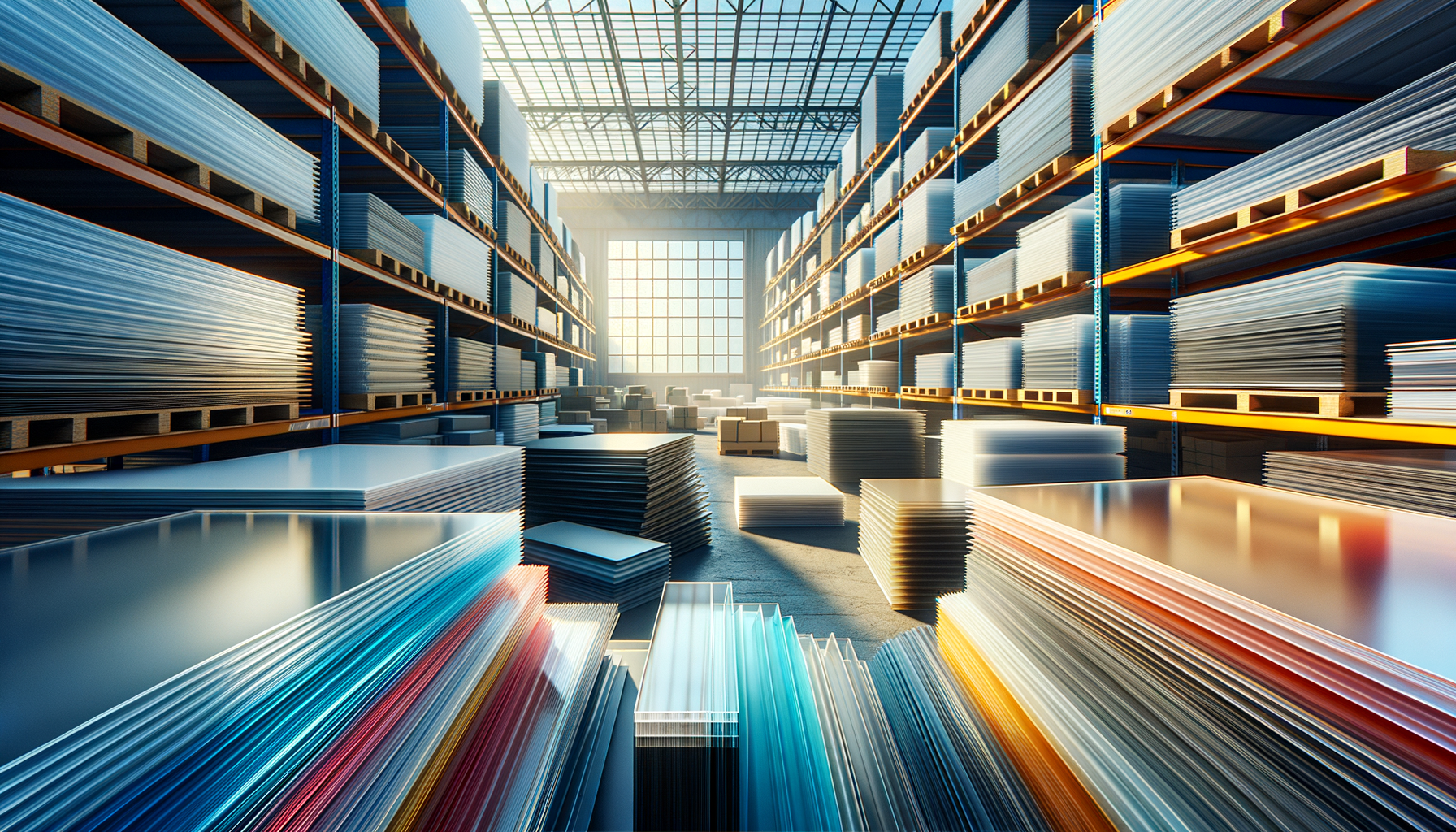Understanding Polycarbonate Sheets
Polycarbonate sheets are a type of thermoplastic polymer known for their exceptional strength and transparency. They are widely used in various applications, ranging from construction and automotive to electronics and agriculture. The unique properties of polycarbonate, such as high impact resistance and thermal insulation, make it a preferred material for many industries. Unlike traditional glass, polycarbonate sheets are lightweight and shatter-resistant, offering a safer alternative in environments where safety and durability are paramount.
Polycarbonate sheets come in various forms, including solid, multiwall, and corrugated sheets, each designed to meet specific needs. Solid polycarbonate sheets are often used for windows and skylights due to their glass-like clarity and strength. Multiwall sheets, with their layered structure, provide excellent thermal insulation, making them ideal for greenhouses and conservatories. Corrugated sheets are commonly used for roofing and cladding, offering a balance of strength and flexibility.
In addition to their physical properties, polycarbonate sheets are also UV-resistant, which helps in maintaining their clarity and structural integrity over time. This makes them suitable for outdoor applications where exposure to sunlight is a concern. As a material, polycarbonate is also easy to mold and shape, allowing for creative and customized designs in architectural and industrial projects.
Applications and Benefits of Polycarbonate Sheets
The versatility of polycarbonate sheets makes them suitable for a wide range of applications. In the construction industry, they are used for roofing, skylights, and glazing, providing both aesthetic appeal and functional benefits. Their lightweight nature reduces the structural load, making installation easier and more cost-effective. Additionally, the high impact resistance of polycarbonate sheets makes them an excellent choice for security glazing in banks and offices.
In the automotive sector, polycarbonate sheets are used for headlights and windows, where clarity and durability are essential. The material’s ability to withstand extreme temperatures without losing its properties is particularly beneficial in automotive applications. Furthermore, polycarbonate’s resistance to chemicals and abrasions ensures longevity in demanding environments.
Polycarbonate sheets also find applications in agriculture, particularly in greenhouse construction. Their excellent thermal insulation helps maintain optimal growing conditions, while their UV protection prevents damage from solar radiation. This results in healthier plants and increased yields, making polycarbonate a valuable material for farmers and horticulturists.
Beyond these industries, polycarbonate sheets are used in electronics for creating durable and lightweight casings for devices. Their transparency and strength make them a preferred choice for protective covers and enclosures. As technology advances, the demand for polycarbonate sheets in innovative applications continues to grow.
Comparing Polycarbonate Sheets to Other Materials
When considering materials for construction or industrial use, polycarbonate sheets often stand out due to their unique combination of properties. Compared to traditional glass, polycarbonate offers superior impact resistance, making it less prone to breakage. This is particularly advantageous in environments where safety and durability are critical, such as schools, sports facilities, and public buildings.
Polycarbonate sheets also outperform acrylic sheets in terms of impact resistance and thermal stability. While acrylic is often chosen for its clarity and cost-effectiveness, polycarbonate provides a more robust solution for applications where strength and temperature resistance are necessary. Additionally, polycarbonate’s ability to be easily molded and shaped offers more design flexibility compared to acrylic.
Another comparison can be made with fiberglass, a material commonly used in roofing and cladding. While fiberglass provides good strength and insulation, polycarbonate sheets offer better clarity and UV resistance. This makes polycarbonate a more suitable option for applications where natural light transmission and long-term clarity are desired.
Overall, the choice between polycarbonate and other materials depends on the specific requirements of the project. However, the combination of strength, transparency, and versatility makes polycarbonate sheets a preferred option for many applications.
Choosing the Right Polycarbonate Sheet for Your Needs
Selecting the appropriate polycarbonate sheet involves considering various factors, such as the intended application, environmental conditions, and budget. Understanding the differences between solid, multiwall, and corrugated sheets is crucial in making an informed decision.
For applications requiring high clarity and strength, solid polycarbonate sheets are ideal. They are often used in windows, skylights, and signage, where visibility and durability are essential. Multiwall sheets, with their insulating properties, are better suited for greenhouses, conservatories, and other structures where temperature regulation is a priority.
Corrugated polycarbonate sheets are a popular choice for roofing and cladding due to their flexibility and strength. They provide excellent protection against weather elements while allowing for some natural light transmission. When choosing corrugated sheets, consider the profile and thickness, as these factors influence the sheet’s performance and suitability for specific applications.
In addition to the type of sheet, consider the UV protection and fire-retardant properties of the polycarbonate material. These features enhance the sheet’s performance and longevity, particularly in outdoor and high-risk environments. By evaluating these factors, you can select a polycarbonate sheet that meets your specific needs and ensures the success of your project.
Installation and Maintenance of Polycarbonate Sheets
Proper installation and maintenance are essential to maximizing the lifespan and performance of polycarbonate sheets. During installation, ensure that the sheets are handled carefully to avoid scratches and damage. Use appropriate tools and techniques to cut and shape the sheets, and follow manufacturer guidelines for securing them in place.
When installing polycarbonate sheets, consider the thermal expansion properties of the material. Allow for expansion and contraction by providing adequate spacing between sheets and using flexible sealants. This prevents warping and ensures a secure fit, even in varying temperatures.
Regular maintenance is also crucial in preserving the appearance and functionality of polycarbonate sheets. Clean the sheets periodically with mild soap and water, avoiding abrasive cleaners that can cause scratches. Inspect the sheets for signs of wear or damage, and address any issues promptly to prevent further deterioration.
In areas with high exposure to sunlight, consider applying a UV protective coating to enhance the sheet’s resistance to UV radiation. This helps maintain clarity and prevents yellowing over time. By following these installation and maintenance tips, you can ensure that your polycarbonate sheets remain in excellent condition and continue to meet your needs effectively.



Leave a Reply